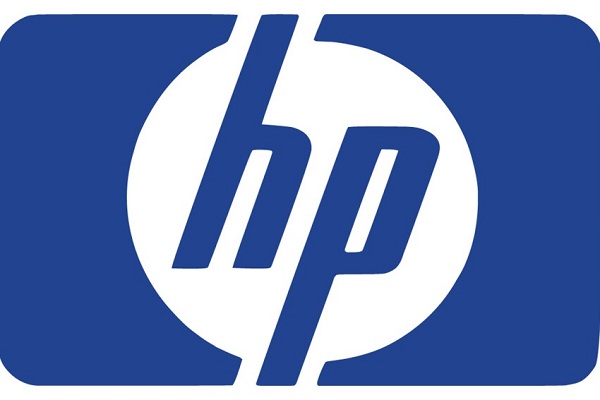HP sets out sell-off strategy for "underperforming" business units
Hardware giant's latest 10-K filing riles former Autonomy boss Mike Lynch, while shedding light on the challenges posed to HP's business from the cloud.

HP is facing fresh calls to reveal more details about the accusations made about the financial goings on at Autonomy prior to its acquisition by the hardware giant in 2011.
The firm announced last November that it had been forced to swallow a $5 billion writedown, which it claims was caused by "serious accounting improprieties, disclosure failures and outright misrepresentations" at Autonomy in the lead up to it acquisition by HP in 2011.
The accusations have been repeatedly denied by former Autonomy CEO Mike Lynch since news of the story broke.
These allegations are false and in the absence of further detail, we cannot understand what HP believes to be the basis for them.
However, last week, Lynch used the publication of HP's 10-K filing with the US Securities and Exchange Commission to call on the vendor to reveal more details about the exact nature of the financial irregularities that are said to have taken place.
The filing makes several references to Autonomy, but according to Lynch is far too light on information about how the $5 billion writedown was calculated.
In a statement, Lynch said the document was "extremely disappointing" and made it harder to decipher the allegations made against Autonomy's former management team.
Get the ITPro daily newsletter
Sign up today and you will receive a free copy of our Future Focus 2025 report - the leading guidance on AI, cybersecurity and other IT challenges as per 700+ senior executives
"It is now less clear how much of the $5 billion writedown is in fact being attributed to the alleged accounting issues, and how much to other changes in business performance and earnings projections. This appears to be a material change in HP's allegations," said Lynch.
"Simply put, these allegations are false and in the absence of further detail, we cannot understand what HP believes to be the basis for them."
The 10-K filing also suggests HP is considering plans to offload some of its underperforming business divisions.
"We continue to evaluate the potential disposition of assets and businesses that may no longer help us meet our objectives," said this year's filing.
However, the company admits this strategy is not without its pitfalls, but would undoubtedly contribute towards the firm's much talked about "multi-year" turnaround strategy, which has been referenced by the firm's CEO Meg Whitman since she took over the company reins in 2011.
"When we decide to sell assets or a business, we may encounter difficulty in finding buyers or alternative exit strategies on acceptable terms in a timely manner, which could delay the achievement of our strategic objectives," it added.
The company also shed some light on the challenges it is facing at the moment, both internally and from other tech market forces, including the growing demand for mobile devices and cloud services.
"We need to align our costs with our revenue trajectory; we need to address our underinvestment in R&D and in our internal IT systems in recent years, which has made us less competitive," the document continued.
"We are also facing dynamic market trends, such as the growth of mobility...the shift to software-as-a-service and the transition towards cloud computing, and we need to develop products and services that position us to win in a very competitive marketplace."
-
 CISA issues warning in wake of Oracle cloud credentials leak
CISA issues warning in wake of Oracle cloud credentials leakNews The security agency has published guidance for enterprises at risk
By Ross Kelly
-
 Reports: White House mulling DeepSeek ban amid investigation
Reports: White House mulling DeepSeek ban amid investigationNews Nvidia is caught up in US-China AI battle, but Huang still visits DeepSeek in Beijing
By Nicole Kobie
-
 Why managing shareholders is key to innovation
Why managing shareholders is key to innovationIn-depth Seeking out investment for new technologies and seeing your ideas through requires continuous and measured trust-building
By Elliot Mulley-Goodbarne
-
 What tech investors can learn from three under-fire CEOs
What tech investors can learn from three under-fire CEOsAnalysis With clear lessons to learn from the high-profile cases of Autonomy, Theranos, and Wirecard, investors should tread carefully in future
By Rois Ni Thuama
-
 UK gov launches £375 million fund for "game-changing" startups
UK gov launches £375 million fund for "game-changing" startupsNews Future Fund: Breakthrough aims to ensure the UK is a world leader in the industries of the future
By Sabina Weston
-
 Xiaomi to be removed from US trade blacklist
Xiaomi to be removed from US trade blacklistNews The tech giant was placed on the CCMC list in January 2021 as one of the last policies enacted by president Donald Trump
By Sabina Weston
-
 UK leads Europe on VC investment despite Brexit uncertainty
UK leads Europe on VC investment despite Brexit uncertaintyNews UK startups raised £10.84 billion in 2020 to break funding records for the second year in a row
By Sabina Weston
-
 Digital investment will add £232 billion to UK economy by 2040
Digital investment will add £232 billion to UK economy by 2040News Digital processes in the public sector will create efficiency gains and cost-savings of £75 billion alone, according to Virgin Media Business
By Sabina Weston
-
 UK to review London listing rules to attract tech firms post-Brexit
UK to review London listing rules to attract tech firms post-BrexitNews Review may consider a reduction to the 25% available shares requirement for listing on the London Stock Exchange
By Sabina Weston
-
 UK records a 16% increase in new tech startups
UK records a 16% increase in new tech startupsNews RSM credits the growth to an increase in demand for technology to support remote working
By Sabina Weston